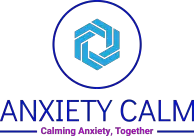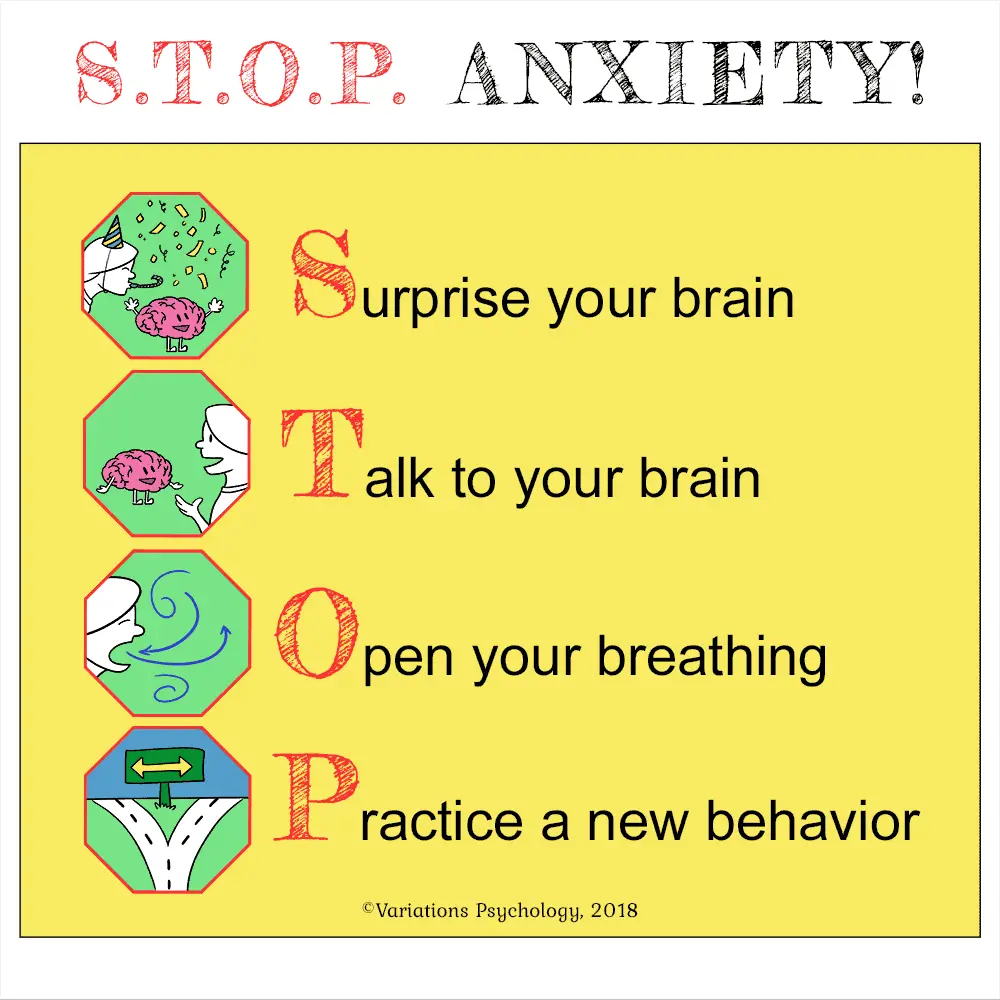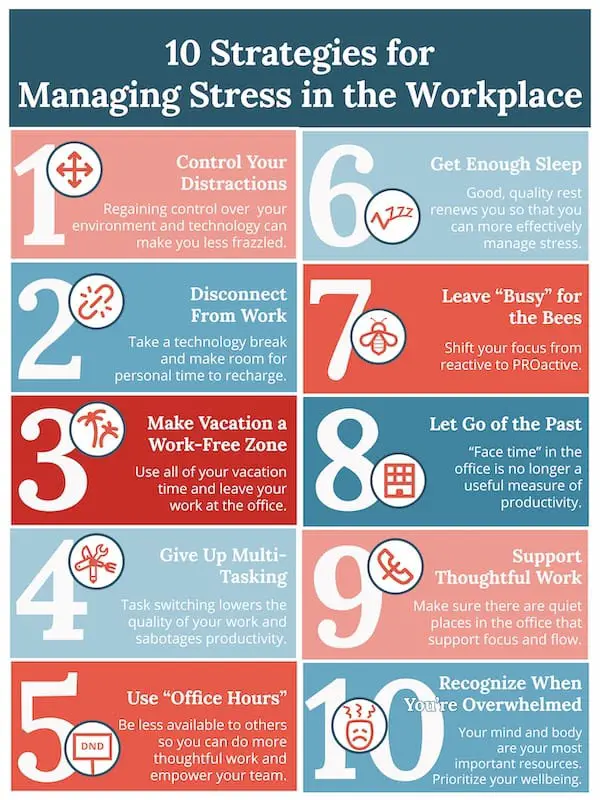Are you feeling anxious about the upcoming GMAT exam? Don’t worry, you’re not alone. Many test-takers experience anxiety during this crucial test that can impact their performance. However, there are effective strategies that can help you manage anxiety and perform at your best on the GMAT. In this article, we will explore some practical techniques to help you stay calm, focused, and perform your best on test day. From proper preparation to relaxation techniques, we’ve got you covered with the tools you need to conquer your anxiety and achieve your GMAT goals.
Understanding the Nature of GMAT Anxiety
Identifying the symptoms of GMAT-related anxiety
When it comes to the GMAT, it is not uncommon for test takers to experience anxiety. Signs of GMAT-related anxiety may include racing thoughts, difficulty concentrating, a sense of dread or panic before and during the test, physical symptoms such as increased heart rate or sweating, and negative thoughts about one’s abilities or potential outcomes. It is important to identify these symptoms in order to address them effectively and enhance overall performance.
Examining the causes of GMAT test anxiety
GMAT test anxiety can have various causes. For some, it may stem from a fear of failure or a desire to achieve high scores. The pressure to perform well and meet personal or external expectations can contribute to anxiety. Additionally, the unfamiliar testing environment, time constraints, and the perceived importance of the GMAT in determining future opportunities can all add to the stress. Understanding the specific causes of test anxiety can help individuals develop targeted strategies to manage and overcome it.
Understanding the impact of anxiety on GMAT performance
GMAT test anxiety can significantly impact an individual’s performance. High levels of anxiety can interfere with cognitive functioning, making it difficult to think clearly and recall information. Anxiety may also lead to poor time management, as individuals may rush through sections or spend excessive time on certain questions. Moreover, anxiety can hinder one’s ability to apply critical thinking skills and make sound decisions, both of which are essential in achieving a high GMAT score. Recognizing the detrimental impact of anxiety on performance can motivate individuals to seek effective techniques for managing and reducing their anxiety levels.
Cognitive Techniques for Managing Anxiety
Utilizing thought-stopping techniques
Thought-stopping techniques involve recognizing and interrupting negative or anxious thoughts. When you catch yourself thinking negatively about the GMAT or your abilities, mentally say “stop” to yourself and shift your focus to more positive or neutral thoughts. This technique helps break the cycle of anxiety and allows you to regain control of your thinking.
Employing cognitive restructuring techniques
Cognitive restructuring involves challenging and changing negative thought patterns related to the GMAT. Identify and challenge irrational or unhelpful thoughts that contribute to your anxiety, such as “I will fail” or “I’m not smart enough.” Replace these thoughts with more realistic and positive ones, such as “I have prepared well and am capable of performing to the best of my abilities.”
Implementing mindful awareness
Mindfulness involves being fully present and aware of the present moment without judgment. Practice Mindfulness techniques, such as meditation or deep breathing exercises, to cultivate a non-judgmental and accepting attitude towards your GMAT-related thoughts and feelings. This can help reduce anxiety and promote a calm and focused state of mind during the test.
Applying visualization techniques
Visualization involves mentally rehearsing successful scenarios and positive outcomes. Before the GMAT, spend some time visualizing yourself confidently answering questions, managing time effectively, and succeeding in the test. This technique can help reduce anxiety by building self-confidence and creating a positive mindset.

This image is property of ischoolprep.com.
Physical Techniques for Managing Anxiety
Practicing deep breathing exercises
Deep breathing exercises, such as diaphragmatic breathing or box breathing, can help activate the body’s relaxation response and reduce anxiety. Take slow, deep breaths in through your nose, allowing your abdomen to expand. Exhale slowly through your mouth, releasing any tension or stress. Repeat this breathing pattern several times to promote relaxation and calmness.
Using progressive muscle relaxation methods
Progressive muscle relaxation involves tensing and then releasing different muscle groups to induce relaxation. Start by tensing your muscles, such as your hands or shoulders, for a few seconds, and then release the tension while focusing on the sensation of relaxation. Repeat this process with different muscle groups throughout your body, progressively relaxing your entire physique.
Benefitting from regular physical exercise
Engaging in regular physical exercise has numerous benefits for managing anxiety. Exercise releases endorphins, which are natural mood boosters. It also helps reduce stress, promotes better sleep, and enhances overall well-being. Incorporate activities like walking, jogging, yoga, or any form of exercise that you enjoy into your routine to alleviate anxiety and improve your mental state.
Diet and Lifestyle Adjustments to Lessen Anxiety
Maintaining a balanced diet
A well-balanced diet plays a significant role in managing anxiety. Choose foods rich in nutrients that support brain health, such as fruits, vegetables, whole grains, lean proteins, and healthy fats. Avoid excessive consumption of sugary or processed foods, as they can lead to energy crashes and mood imbalances. Stay hydrated by drinking enough water throughout the day, as dehydration can exacerbate anxiety symptoms.
Getting an adequate amount of sleep
Sufficient sleep is crucial for managing anxiety and optimizing cognitive function. Aim for 7-9 hours of quality sleep each night. Establish a consistent sleep schedule and create a relaxing bedtime routine to promote better sleep hygiene. Avoid engaging in stimulating activities or using electronic devices close to bedtime, as they can interfere with your ability to fall asleep.
Avoiding stimulants like caffeine and alcohol
Stimulants like caffeine and alcohol can exacerbate anxiety symptoms. Limit your consumption of caffeinated beverages, such as coffee or energy drinks, as they can increase heart rate and induce anxiety. Similarly, alcohol may temporarily alleviate anxiety, but it can disrupt sleep patterns and worsen anxiety in the long run. Opt for herbal teas or decaffeinated alternatives to manage anxiety more effectively.
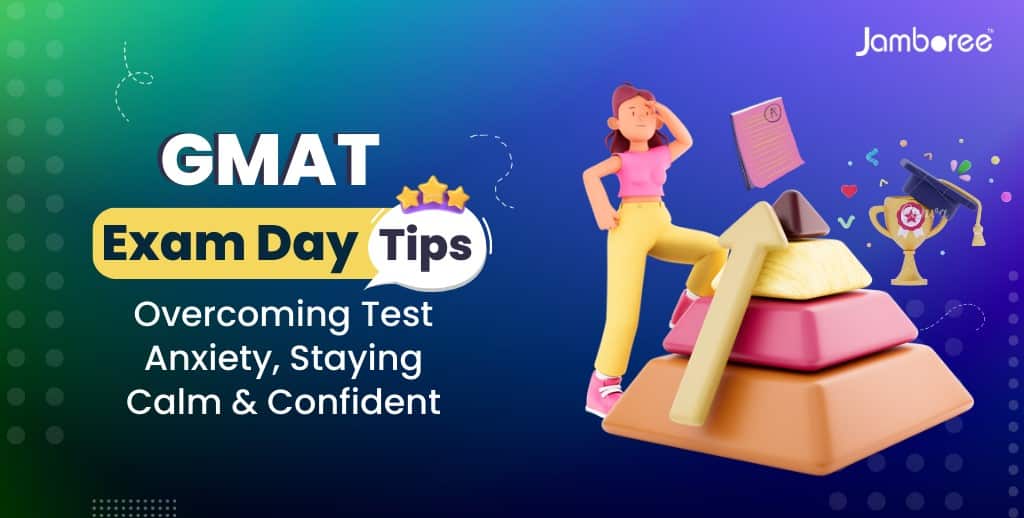
This image is property of www.jamboreeindia.com.
Setting Realistic Goals and Expectations
Setting achievable study and preparation goals
It is essential to set realistic and attainable study goals to manage anxiety effectively. Break down your GMAT preparation into smaller tasks and allocate specific timeframes to complete them. This approach allows for a more manageable and structured study plan, reducing the overwhelm and anxiety associated with studying for a challenging exam like the GMAT.
Managing expectations for GMAT scores
While achieving high GMAT scores is desirable, it is important to manage expectations realistically. Understand that the GMAT is only one component of your overall profile and that success is not solely determined by this exam. Focus on giving your best effort, rather than solely fixating on a specific score. By adopting a balanced perspective, you can alleviate unnecessary performance pressure and anxiety.
Remembering that the GMAT is not the only measure of potential success
It is crucial to remember that the GMAT is just one aspect of your academic journey. Admissions committees also consider other factors such as work experience, recommendation letters, and personal statements when evaluating applicants. Recognize that the GMAT is not the sole determinant of your potential for success and that you possess many other skills and qualities that contribute to your overall profile.
Effective Time Management Strategies
Establishing a consistent study schedule
Creating and sticking to a consistent study schedule is crucial for managing time effectively and reducing anxiety. Determine your available study hours each day and allocate specific time slots for GMAT preparation. Establishing a routine helps generate a sense of structure and control, allowing you to make the most of your study time and reduce the stress associated with last-minute cramming.
Balancing study time with crucial breaks
While consistent studying is important, it is equally vital to schedule regular breaks. Taking short breaks during study sessions allows your brain to rest and recharge, improving focus and retention. Engage in activities you enjoy during these breaks, such as going for a walk, listening to music, or practicing relaxation techniques. This balance between focused studying and rejuvenating breaks enhances overall productivity and reduces anxiety.
Optimizing time during the GMAT
During the actual GMAT, time management is critical to minimize anxiety and maximize performance. Familiarize yourself with the test format and question types beforehand to develop efficient strategies. Pace yourself during the exam, allocating appropriate time to each section while maintaining a steady rhythm. Avoid spending too much time on difficult questions and learn to make educated guesses when necessary. Practicing time management strategies beforehand will boost your confidence and reduce anxiety on test day.

This image is property of i0.wp.com.
Utilizing Relaxation Techniques
Practicing regular meditation
Meditation is a powerful relaxation technique that can help manage anxiety and promote mental well-being. Set aside a few minutes each day to practice meditation, focusing on your breath, and allowing your thoughts to come and go without judgment. Consistent meditation practice can enhance your ability to stay calm and centered, even in stressful situations like the GMAT.
Engaging in yoga or Tai Chi
Yoga and Tai Chi are mind-body practices that combine physical movement with deep breathing and mindfulness. These practices promote relaxation, reduce stress, and improve mental clarity. Consider incorporating regular yoga or Tai Chi sessions into your routine to reap their calming effects and develop greater resilience in managing anxiety.
Making time for leisure activities
Engaging in leisure activities that bring you joy and relaxation is crucial for managing anxiety. Dedicate time each week to hobbies, leisurely pursuits, or spending time with loved ones. Whether it’s reading, watching movies, playing sports, or exploring the outdoors, these activities provide a much-needed break from GMAT-related stress and allow you to recharge both physically and mentally.
Support Systems and Mental Health Resources
Creating a supportive study group
Building a supportive study group can help alleviate anxiety and create a sense of camaraderie. Collaborate with fellow GMAT test-takers to share study materials, discuss challenging concepts, and provide encouragement. This support system can create a positive learning environment and boost morale during the preparation process, thus minimizing anxiety.
Seeking professional help when necessary
If anxiety persists and significantly affects your daily functioning or well-being, it may be beneficial to seek professional help. Mental health professionals, such as therapists or counselors, can provide evidence-based techniques for managing anxiety tailored to your specific needs. They can help you develop coping strategies, address underlying issues, and provide support throughout the GMAT preparation and test-taking process.
Utilizing online mental health resources
In addition to seeking in-person support, various online resources are available to assist individuals in managing anxiety. Websites, articles, and forums dedicated to mental health and test anxiety can provide valuable insights, strategies, and support. Online self-help programs or mobile applications focused on anxiety management may also be beneficial resources for those looking for additional guidance and tools.
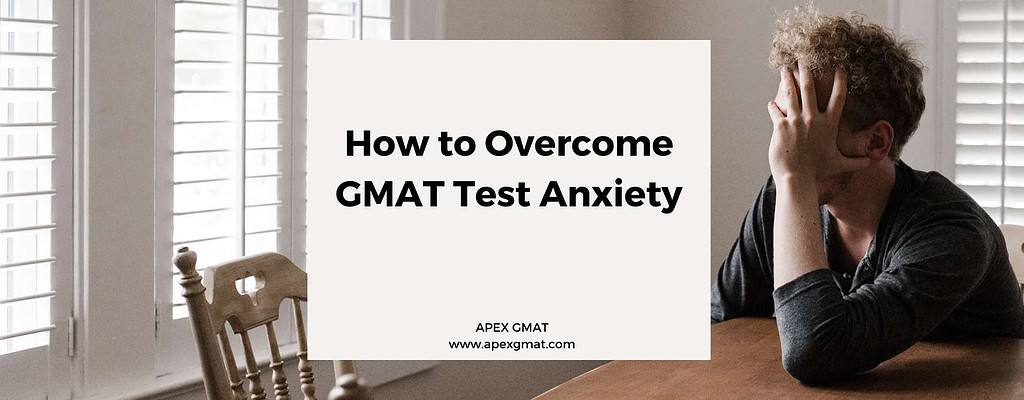
This image is property of focustutoring.com.
Exposure and Desensitization Strategies
Taking practice GMAT tests under realistic conditions
Taking practice GMAT tests under realistic conditions can help desensitize anxiety and build confidence. Simulate test-like conditions by timing yourself, finding a quiet space, and using official GMAT practice materials. Through repeated exposure to the format and pacing of the test, you will become more familiar and comfortable, reducing anxiety and improving performance.
Gradually increasing study intensity
Instead of overwhelming yourself with intense study sessions right from the beginning, gradually increase study intensity over time. Start with shorter study sessions and build up to longer, more intensive study periods. This gradual approach allows your mind and body to adjust and minimizes the chances of becoming overwhelmed or anxious.
Utilizing mindfulness techniques
Mindfulness techniques are effective in managing anxiety during the GMAT. Practice mindfulness exercises while studying or during breaks to ground yourself in the present moment and reduce anxiety. Focus on your breathing, observe your thoughts non-judgmentally, and bring your attention back to the present whenever your mind wanders. Incorporating mindfulness techniques into your GMAT preparation routine can enhance focus, reduce anxiety, and improve overall performance.
Post-GMAT Recovery and Reflection
Taking time to relax and recover post-test
After taking the GMAT, it is important to take time for rest and relaxation. Engage in activities that help you unwind and recharge, such as spending time with loved ones, enjoying hobbies, or treating yourself to some self-care activities. Allowing yourself to recover post-test can help alleviate any residual anxiety and maintain overall well-being.
Reflecting on the GMAT experience
Take some time to reflect on your GMAT experience once the test is over. Consider your strengths and areas for improvement, as well as any strategies that proved effective in managing anxiety. Reflecting on your experience can provide valuable insights for future exam preparations and help you develop a more targeted approach in managing anxiety during similar situations.
Using the experience for future exam preparations
The GMAT experience can serve as a valuable learning opportunity for future exams or challenges. Apply the strategies and techniques that helped you manage anxiety during the GMAT to other stressful situations. Take note of what worked well for you and adapt these practices to optimize your performance and well-being in future endeavors.
In conclusion, managing anxiety during the GMAT is crucial for achieving optimal performance. By understanding the nature and causes of test anxiety, utilizing cognitive and physical techniques, adopting healthy lifestyle adjustments, setting realistic goals, and developing effective time management strategies, individuals can minimize anxiety and enhance their overall experience and performance during the GMAT. Additionally, utilizing relaxation techniques, seeking support systems and mental health resources, employing exposure and desensitization strategies, and reflecting on the experience can further contribute to managing anxiety in a productive and healthy manner. Remember, the GMAT is just one part of your journey, and it is essential to prioritize self-care and well-being throughout the entire process.

This image is property of blog.targettestprep.com.
